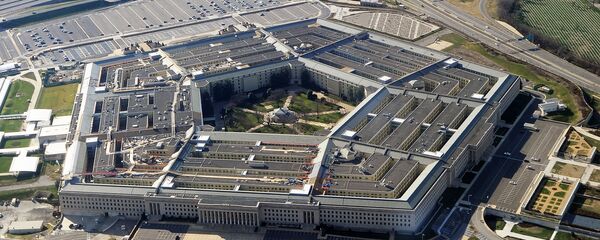As Daesh, also known as ISIL/the Islamic State, has spread across Iraq and Syria, the Obama administration has struggled to adopt an effective strategy for dealing with the terrorist group. The US government’s initial plan to arm and train so-called "moderate" Syrian rebels failed after the Pentagon could not identify enough qualified candidates, and, despite over a year of airstrikes, Daesh’s illegal oil trade continues.
According to the administration, those failures weren’t the result of bad policies, but rather the result of poor communication. The White House has now formed a working group to analyze "how best to articulate what it is we’re trying to do."
"To say there’s no strategy is just flat out wrong," Army Col. Christopher Garver, Pentagon public affairs officer for the Syria campaign, told the Hill. "If you want to have a debate about it, that’s good, let’s talk about it. But there is a strategy."
US military officials speaking to the Hill on condition of anonymity indicate that the working group will focus on convincing the American public of White House effectiveness in Syria.
"In recent months and weeks we’ve been encouraging principals across the [US government] to get out more to talk about their aspects of the counter-ISIL campaign and to new audiences," one official said.
Earlier this week, President Obama told NPR that "we haven’t, you know, on a regular basis, I think, described all the work that we’ve been doing for more than a year now to defeat ISIL," adding that, "part of our goal here is to make sure that people are informed about all the actions that we’re taking."
Many critics aren’t convinced, suggesting that the Obama administration is using a greater amount of resources to explain itself than it is to effect a positive outcome in the region.
"This isn’t the first time the president has stressed that the American people just don’t get it, blaming poor communication for America’s discontent rather the failed policies themselves," reads a statement provided to the Hill by the office of US House Speaker Paul Ryan.
Ryan’s statement also stressed the need for a "comprehensive plan to destroy this enemy and protect our homeland."
Writing for AntiWar, Jason Ditz notes concerns over the intentions of the new working group.
"It remains to be seen exactly how the Pentagon aims to shift the narrative this time, but conspicuously absent from early conversation on this 'new' narrative is laying out exactly what the nebulous strategy to win the war actually is," Ditz writes.
"And despite Pentagon assurances that they 'welcome debate' on the strategy, that’s the one thing that’s least likely to happen, as the administration has so far seemed to base the public narrative of the war on a series of vague pledges to eventually wipe out ISIS in some unspecified way with some unspecified force," he adds.





